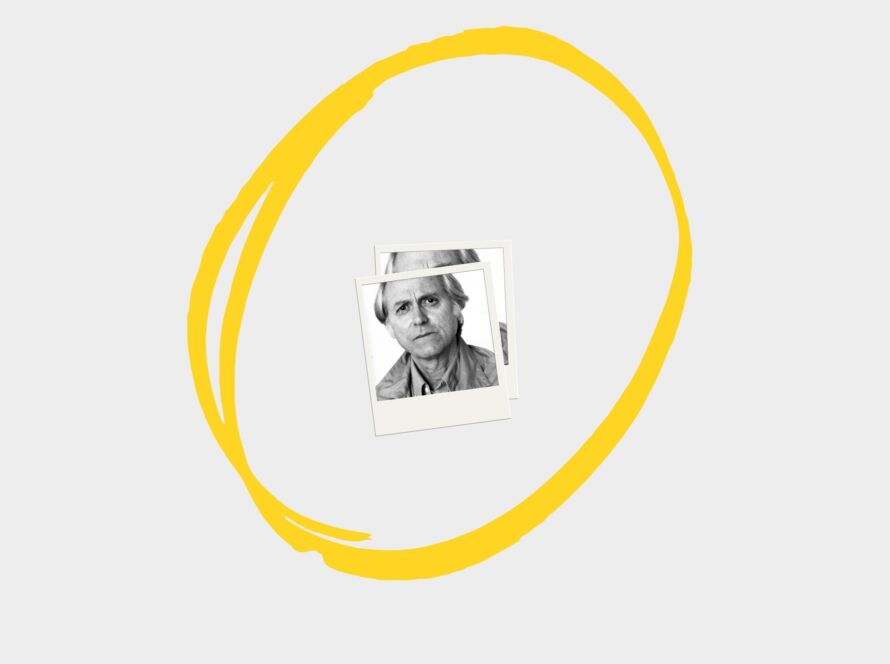Seamus Heaney, born on April 13, 1939, in Northern Ireland, was an acclaimed poet, translator, and playwright. Throughout his illustrious career, Heaney crafted works that delved deep into the rich tapestry of Irish history, culture, and landscapes. His lyrical and evocative poetry earned him international recognition and solidified his status as one of the greatest poets of the 20th century.
Heaney’s upbringing in rural County Derry, with its deep connections to Irish folklore and the natural world, greatly influenced his poetic sensibilities. His early experiences shaped his fascination with language, community, and the connection between the past and present. Heaney’s poems often celebrated the beauty of the Irish landscape while also grappling with the complex political and cultural realities of his time.
Heaney’s poetry strikingly combined tradition and innovation. Drawing inspiration from ancient Irish poetry and mythology, he breathed new life into these timeless themes. Heaney’s masterful use of language, rhythm, and imagery created a unique poetic voice that resonated with readers worldwide.
Heaney’s poems explored themes of identity, memory, and the weight of history. His deeply introspective verses reflected on the complex history of Ireland, the Troubles, and the experiences of ordinary individuals caught in the crosscurrents of social and political change. Heaney’s works, such as “Digging,” “Mid-Term Break,” and “The Tollund Man,” captivated readers with their emotional depth and profound insights into the human condition.
In 1995, Heaney was awarded the Nobel Prize in Literature, an honor that recognized his exceptional contributions to the world of poetry. His Nobel lecture, “Crediting Poetry,” emphasized the transformative power of poetry and its ability to shape human understanding and empathy. Heaney’s win brought him even greater international acclaim, solidifying his place among the literary giants of his time.
Seamus Heaney’s impact on poetry and literature continues to resonate long after his passing in 2013. His ability to capture the essence of Ireland’s history, its people, and its landscapes earned him the admiration of readers across the globe. Heaney’s poems, with their lyrical beauty and profound reflections, continue to be studied, cherished, and celebrated by scholars, students, and poetry lovers alike.
Seamus Heaney’s poetry transcends boundaries and speaks to the universal human experience. His ability to fuse tradition with innovation, and to capture the essence of Ireland’s past and present, makes him an enduring figure in the literary canon. Seamus Heaney’s legacy as a master poet and guardian of Irish heritage reminds us of the power of poetry to illuminate, inspire, and connect us to our shared humanity.
The completely solitary self: that’s where poetry comes from, and it gets isolated by crisis, and those crises are often very intimate also.
Seamus Heaney
My point is there’s a hidden Scotland in anyone who speaks the Northern Ireland speech. It’s a terrific complicating factor, not just in Northern Ireland, but Ireland generally.
Seamus Heaney
Poetry is always slightly mysterious, and you wonder what is your relationship to it.
Seamus Heaney
The fact of the matter is that the most unexpected and miraculous thing in my life was the arrival in it of poetry itself – as a vocation and an elevation almost.
Seamus Heaney
Then as the years went on and my listening became more deliberate, I would climb up on an arm of our big sofa to get my ear closer to the wireless speaker.
Seamus Heaney
There is risk and truth to yourselves and the world before you.
Seamus Heaney
When I first encountered the name of the city of Stockholm, I little thought that I would ever visit it, never mind end up being welcomed to it as a guest of the Swedish Academy and the Nobel Foundation.
Seamus Heaney
Whether it be a matter of personal relations within a marriage or political initiatives within a peace process, there is no sure-fire do-it-yourself kit.
Seamus Heaney
Write whatever you like!
Seamus Heaney
Manifesting that order of poetry where we can at last grow up to that which we stored up as we grew.
Seamus Heaney
Without needing to be theoretically instructed, consciousness quickly realizes that it is the site of variously contending discourses.
Seamus Heaney
Even if the hopes you started out with are dashed, hope has to be maintained.
Seamus Heaney
The Ireland I now inhabit is one that these Irish contemporaries have helped to imagine.
Seamus Heaney
In fact, in lyric poetry, truthfulness becomes recognizable as a ring of truth within the medium itself.
Seamus Heaney
But that citizen’s perception was also at one with the truth in recognizing that the very brutality of the means by which the IRA were pursuing change was destructive of the trust upon which new possibilities would have to be based.
Seamus Heaney
Even if the last move did not succeed, the inner command says move again.
Seamus Heaney
I always believed that whatever had to be written would somehow get itself written.
Seamus Heaney
I credit poetry for making this space-walk possible.
Seamus Heaney
As writers and readers, as sinners and citizens, our realism and our aesthetic sense make us wary of crediting the positive note.
Seamus Heaney
I have begun to think of life as a series of ripples widening out from an original center.
Seamus Heaney
A public expectation, it has to be said, not of poetry as such but of political positions variously approvable by mutually disapproving groups.
Seamus Heaney
I suppose you could say my father’s world was Thomas Hardy and my mother’s D.H. Lawrence.
Seamus Heaney
I’ve always associated the moment of writing with a moment of lift, of joy, of unexpected reward.
Seamus Heaney
At home in Ireland, there’s a habit of avoidance, an ironical attitude towards the authority figure.
Seamus Heaney


